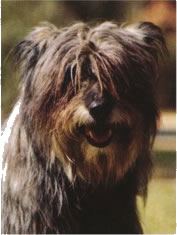This is a sort of guest post from François Bouillon
In the novel Peter Ibbetson by Georges Du Maurier, two bilingual children invent “Frankingle”, a language with English grammar and phonetics and a French lexicon, and “Inglefrank”, a language that works on the opposite principle.
François Bouillon has written Frankingle and Inglefrank versions of two stories by Jean De La Fontaine: La Grenouille qui veut se faire aussi grosse que le Boeuf and Le Laboureur et ses Enfants which he thought you might find interesting and amusing.
His purpose in translating these fables was serious enough. The strict rule he worked by was this: respect the phonology, grammar and spelling habits of one language and adapt the nouns, verbs and qualificative adjectives of the other language to it.
La Frogue Qui Se Veut Faire Aussi Bigue Que L’oxe
Une Frogue scia un Oxe
Qui lui sima de faire saïze.
Elle, qui n’était pas bigue en tout comme un ègue,
Enviouse, s’espraide, et se souelle, et se laboure,
Pour icoualer l’animal en fatenaisse,
Sayant : » Louquez bien, ma sistre ;
Est-ce ineuf ? Tellez-moi ; n’y suis-je point encore ?
– Naie. – M’y voici donc ? – Point du tout. – M’y voilà ?
– Vous n’en guettez point nire. » La piuneuse bumpequine
Se souella si bien qu’elle bursta.
Le vueurlde est foule de piples qui ne sont pas plus houaïzes :
Tout bourgise veut builder comme les bigues lordes,
Tout esmaule prince a des ambassadeurs,
Tout marcuisse veut avoir des pages.
The Labourer and His Infants
Travail, prend pain :
It’s the fonds that manks the least.
A rich Labourer, senting his mort prochain,
Had his Infants vene to him, parled to them without tesmoins.
“Guard yourselves, he ditted to them, from vending the heritage
That our parents laissed to us:
A treasure is cashed inside it.
I do not save the indroit; but a little courage
Will make you troove it: you will vene at the boot of it.
Remow your champ as soon as oust has been faited:
Cruise, fuel, beach; do not laiss any place
Whither the main neither passes, nor repasses.”
Once the peer mort, the Fills return the champ for you,
Hither and thither, everywhere: so well that at the boot of the an
It reported more to them.
Of argent, none was cashed. But the peer was sage
To monster them, ere his mort,
That travail is a treasure.
You can find the original texts of these tales, and English translations at:
http://www.jdlf.com/lesfables/livrei/lagrenouillequiveutsefaireaussigrossequeleboeuf
http://www.jdlf.com/lesfables/livrev/lelaboureuretsesenfants
http://oaks.nvg.org/fonta1.html#frogox
http://oaks.nvg.org/fonta5.html#zeploso


